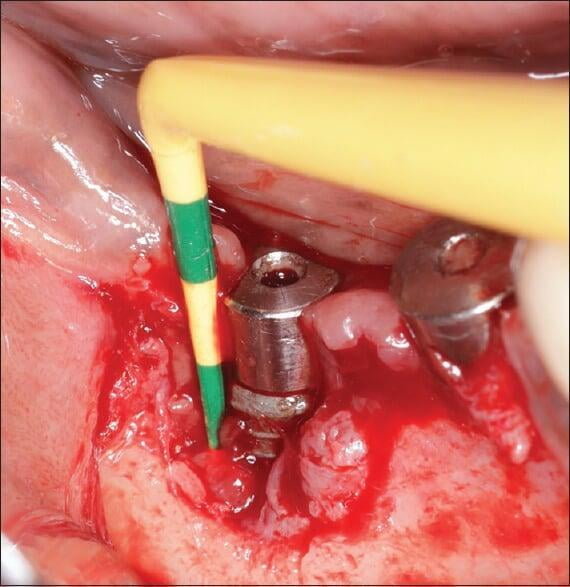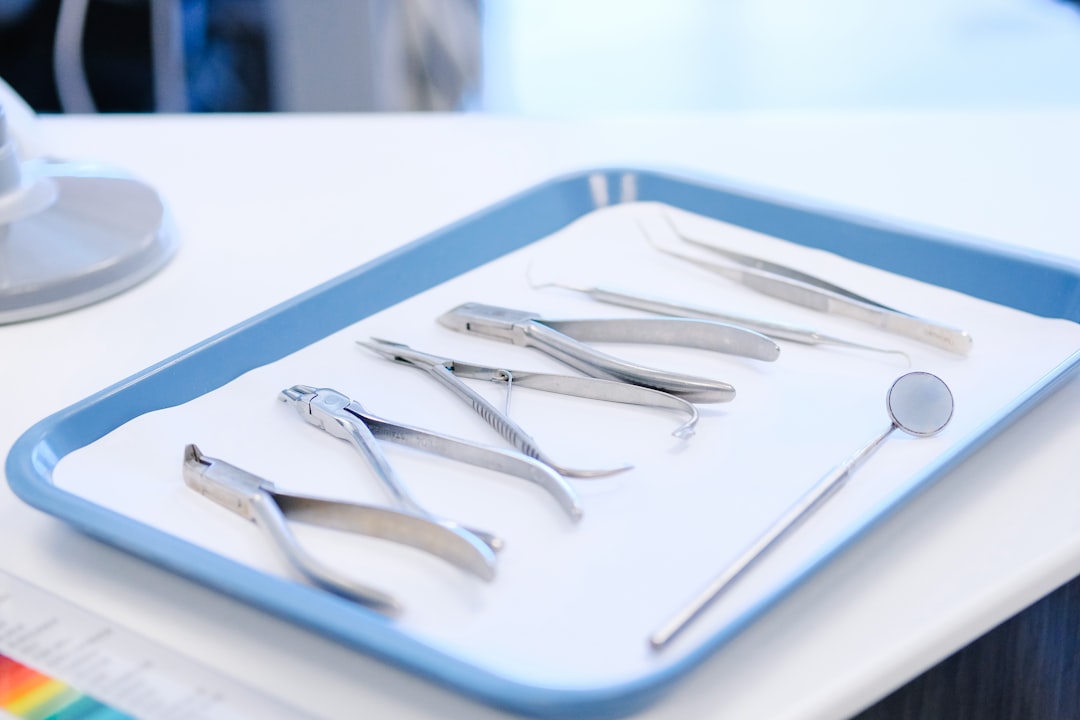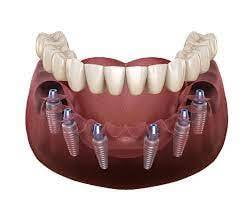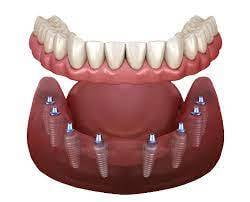Are you having a Loose Implant?
It could be because of Implant Infection!
Patients are often often told that Dental Implants are a permanent solution. However in 2-5% of cases, even the implants can become loose or unstable. If you notice any signs of loose dental implant, it is important to seek professional evaluation and advise from your dentist at the earliest possible to avoid any implant infections or complications.
Signs and Symptoms
Few of the common signs and symptoms of a loose implant are as follows:
- Pain and Discomfort
Early signs include discomfort and dull pain around the loose implant. Functionality and chewing with loose implant becomes difficult.
- Recession of Gums and Discolouration around Implant
Gums recede around implants with Infection. Gum recession with loose implants can look unaesthetic, make patients feel self-conscious, and even result in implant failure.
- Mobility or Loose Implant
A failed implant will be consistently movable. If your dentist notices that your implant is mobile, they might recommend an X-ray to check your bone growth around the Implant.
Inflammation around Loose Implant
Peri-implantitis is an inflammatory diseased condition affecting the soft and hard gum tissues around dental implants. Similar to a natural tooth, bacteria can build up on the base of the implant, below the gum line causing swelling.
Movement of Artificial Crown.

Causative Factors:

Loose Dental Crown
If you've had Crown held on with Cement, the de-cementation of the crown can lead to a loose crown which needs to be cemented.
Infection
Current or previous infections around the loose implant increases the risk of implant failure. Some of the other reasons for failed implant include trauma during surgery, Poor Implant positioning, Delayed wound healing due to other Medical Problems, Poor bone stability, overloading the Implant etc.
Most Common: Loose Abutment
The abutment is a crucial component that connects the dental implant to the crown or tooth cap. In approximately one-third of cases, the abutment is the part that becomes loose. Abutments can go loose for several reasons, including trauma, faulty design, or excessive force on the implant. In some cases, improper placement of the implant can also contribute to abutment looseness. Fortunately, this issue is often painless and can typically be resolved without causing damage to the implant or crown.
Gum Disease and Bone Loss
It may be a combination of factors, including:
- Aggressive Gum disease
- Deficient jaw bone
- Medical or Systemic conditions
- Improper implant placement
Improper Home Care
Failure to follow postoperative instructions and poor oral hygiene efforts may increase the risk of Implant Infection.

We fix the Loose Implant!
We specialise in providing alternate treatments as well as replacing the failed implant. Our recommendation for repairing your loose implant or implant infection will depend on various factors and different treatment protocols. We will re-evaluate all the systemic medical conditions as well.
If we catch a problem early on, we will take appropriate preventive measures to stabilise the implant and address the issue. However, in certain peculiar situations we have to remove the failed implant.
In some cases, a new implant that better fits your individual needs can be placed immediately. Sometimes, added measures are needed, such as a bone grafting procedure or sinus lift, to help support your implant placement. In more severe cases, it could take several months before your implant area is healed.
If you’re worried your implant might be failing, contact us immediately. The sooner we address the issue, the better chance we have of saving the loose implant.
All-on-4 Implants
All-on-6 Dental Implants
Patients with edentulism (the absence of teeth) can also be advised to go for an All-on-6 Dental implant treatment option. Six implants are used to repair and re-construct the single arch of teeth. Bridges are fabricated over 6 implants to replace 12 teeth in each jaw (First Molar to First Molar).
The All-on-6 system ensure an optimum rock-solid solution and the perfect fit. Talk to us to learn if All-on-6 implants are right for you.


All-on-8 Dental Implants
Patients with edentulism (the absence of teeth) can be advised to go for an All-on-8 Dental implant treatment option. For individuals who look forward to restore more than 90% of their lost natural teeth bitting efficiency, this treatment option is often advised.
Eight implants placed in one tooth arch also makes it possible to install a bridge more swiftly and securely. All-on-eight procedures are more efficient, have a natural appearance and feel, and, most significantly, are fixed.















